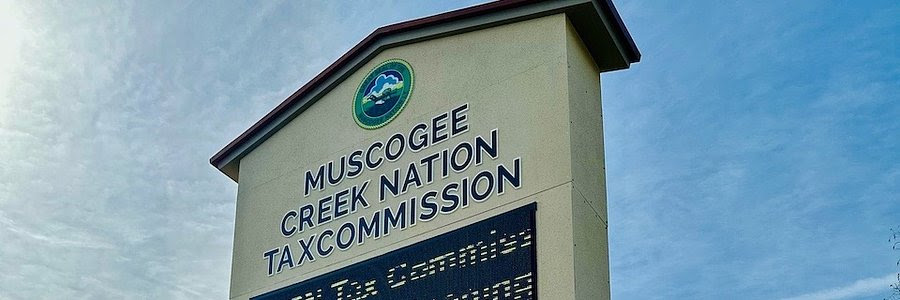
- Details
- By Native News Online Staff
Muscogee (Creek) Nation Principal Chief David Hill and Governor Kevin Stitt have signed an agreement to extend negotiations on a Tobacco Tax Compact between the Muscogee (Creek) Nation and the State of Oklahoma for an additional three months.
The extension moves the deadline from December 31, 2024, to March 31, 2025.
"These continued negotiations are important, as the Muscogee Nations remains steadfast in our resolve to reach a new tobacco compact that protects our sovereignty, our business owners, and that is fair and equitable for both the Nation and for Oklahoma,” Principal Chief David Hill said. “We look forward to having more time to engage on a true government-to-government basis to reach an agreement that does not compromise the sovereign interests of the Nation.”
The key terms of the extension agreement are:
- Obtaining a new tobacco compact will not be contingent on the Nation and State agreeing on a motor vehicle tag compact.
- MCN will not license any new retail outlets during the extension period, except to renew existing licenses at retail sites.
- All other terms of the existing compact will remain the same.
More Stories Like This
NCAI Passes Two Emergency Resolutions on Immigration Enforcement ActivitiesChickasaw Lighthorse Police Officer named Indian Country Law Enforcement Officer of the Year
Indian Gaming Association Rallies Broad Coalition Against Sports Event Contracts It Calls Illegal Threat to Tribal Sovereignty
Navajo Resources and Development Committee Issues Notice on Livestock Inspection Requirements
American Prairie, Tribal Coalition Files Protest Over Rescinded Grazing Rights
Help us defend tribal sovereignty.
At Native News Online, our mission is rooted in telling the stories that strengthen sovereignty and uplift Indigenous voices — not just at year’s end, but every single day.
Because of your generosity last year, we were able to keep our reporters on the ground in tribal communities, at national gatherings and in the halls of Congress — covering the issues that matter most to Indian Country: sovereignty, culture, education, health and economic opportunity.
That support sustained us through a tough year in 2025. Now, as we look to the year ahead, we need your help right now to ensure warrior journalism remains strong — reporting that defends tribal sovereignty, amplifies Native truth, and holds power accountable.
 The stakes couldn't be higher. Your support keeps Native voices heard, Native stories told and Native sovereignty defended.
The stakes couldn't be higher. Your support keeps Native voices heard, Native stories told and Native sovereignty defended.
Stand with Warrior Journalism today.
Levi Rickert (Potawatomi), Editor & Publisher

